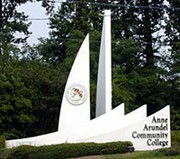|
|
IDEA 2004: What You Know CAN Hurt You
Anne Arundel Community College, Arnold, Maryland
March 15, 2006
What
You Don't Know About IDEA 2004 CAN Hurt You
by Pete
Wright, Esq. and Wayne
Steedman, Esq. is co-sponsored
by Psychological Resource Associates, The Learning Network and Anne
Arundel Community College.
 The
program will be held
at: The
program will be held
at:
Anne
Arundel Community College
101 College Parkway
Arnold, MD 21012
Program
Description
IDEA 2004: What
You Don't Know CAN Hurt You focuses on changes in IDEA 2004.
You will learn about:
- New
requirements for evaluations, reevaluations, parental consent
- New
requirements for IEPs, IEP teams, IEP meetings
- Eligibility
requirements for students with specific learning disabilities
- Accommodations
on high stakes tests, accommodations guidelines, alternate assessments
- New
rules about discipline and manifestation reviews
- New
procedural requirements and timelines, including the “Due Process
Complaint Notice” and “Resolution (IEP) Session”
Agenda
| 8:00-9:00 |
Registration and
refreshments |
| 9:00-10:30 |
Introductions.
IDEA
History and Overview.
Section 1400: Findings and Purposes.
Section 1401:
Definitions - Child with a disability, special Education, specific learning disability, etc. |
| 10:30-10:45 |
Break |
| 10:45-12:00 |
Section 1412: Child
Find, Least Restrictive Environment, Private Placements, Statewide
Assessments, Accommodations.
Section 1414: Evaluations,
Re-Evaluations, Individualized Education Programs (IEPs) |
| 12:00-1:00 |
Lunch |
| 1:00-2:30 |
Section 1415:
Procedural Safeguards - Prior Written Notice, Resolution Session,
Mediation, New Requirements for Due Process Hearings,
Discipline. Proposed IDEA 2004 Regulations. |
| 2:30-2:45 |
Break |
| 2:45-4:00 |
No Child Left Behind
Act (NCLB): Reading, Research Based Instruction, Requirements for Highly Qualified Teachers, Parental "Right to Know." Strategies to Use NCLB & IDEA in Special Education Advocacy. |
| 4:00-4:30 |
Questions and
Answers |
Registration
Click here to register
Credits
CEUs: This program has been approved
for 6 CEUs by the State of Maryland Board of Examiners of Psychologists.
CLEs: Delaware and Virginia have approved 6 CLE credit hours for this conference.
Wrightslaw:
IDEA 2004 is the textbook for this program. Wrightslaw:
IDEA 2004 includes the full text of Part A and Part B of the
Individuals with Disabilities Education Act with commentary, analysis
and cross-references.
Questions?
Call Psychological
Resource Associates at (410)
647-8840 or send a fax (410) 647-1405
Accommodations, Airports, Directions
Accommodations
A short list of places to stay is included below. For great visitor
information and updates on hotels, inns, and B&B's, go to www.visit-annapolis.org
- Annapolis
Courtyard by Marriott,
2559 Riva Road, Annapolis, MD 21401-7454, (410) 266-1555
- Annapolis
Marriott Waterfront, 80 Compromise St., Annapolis, MD 21401-1810,
(410) 268-7555
-
Best Western,
2520 Riva Road, Annapolis, MD 21401-7405, (410) 224-2800
- Comfort
Inn, 76 Old Mill BTM Road N, Annapolis, MD 21401-5496, (410) 757-8500
Airports
Baltimore-Washington
International, Anne Arundel County, MD
Washington National Airport,
Washington, DC
Directions
to Anne Arundel Community College
 From
Washington or Annapolis: Take Route 50 east to exit 27, Route 2
north (Governor Ritchie Highway) toward Baltimore. Stay on Route 2 for
about three miles. From
Washington or Annapolis: Take Route 50 east to exit 27, Route 2
north (Governor Ritchie Highway) toward Baltimore. Stay on Route 2 for
about three miles.
Turn right on College Parkway. The first right turn is the campus entrance.
From
Baltimore: From Interstate 695 take exit 2, Route 10 toward Severna
Park. Stay on Route 10 until it ends at Route 2 (Governor Ritchie Highway).
Follow Route 2 south about five miles.
Turn left on College Parkway. The first right turn is the campus entrance.
For
driving directions from your location, use
Mapquest
Maryland
Yellow
Pages for Kids with Disabilities
We built
the Maryland
Yellow Pages for Kids with Disabilities so you can get reliable
information and support. Learn how to build your team, educate yourself
about your child's disability, join a parent group, and find help on
the Yellow Pages for Kids
site.
The Yellow Pages for each state has many helpful resources - evaluators,
educational consultants, academic tutors, support groups, grassroots
organizations, advocates, attorneys and others who help parents get
services for their children.
To
Wrightslaw Training & Seminars Page
|

